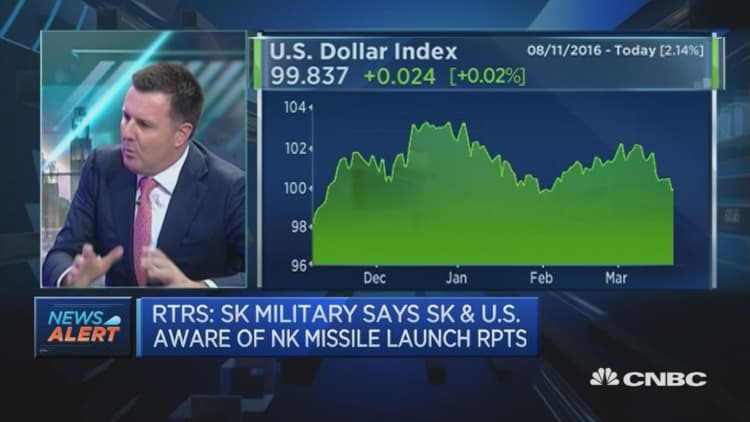
Depending who you ask, the French are a month away from (a) the most important election of 2017, (b) their most important presidential election since 2002, (c) their most important election in one, maybe two generations, or (d) all of the above.
Most polls suggest Marine Le Pen is a top first-round pick for voters, with a post-debate Elabe survey putting the leader of the far-right Front National party slightly behind independent centrist Emmanuel Macron.
A healthy majority of analysts and experts believe Le Pen, who wants to pull France out of the euro zone, won't win the second round of voting if she makes it past the first, as her father did in 2002 (only to be crushed by Jacques Chirac in the run off). Still, as the Financial Times reported, more fund managers and bankers are taking her party seriously and trying to get up to speed on its platform.
"In the short term, the French elections make a bit of a mess of the European story," said Wayne Gordon, Commodities and FX Strategist at UBS.
Bookmakers William Hill give Le Pen a 25 percent chance (3/1 odds) of becoming the next president of France. The Elabe poll suggests she'd get 36 percent of the second-round votes versus 64 percent for Macron. UBS has a 40 percent risk case the 48-year-old could win.
"Everyone's concerned about, 'well what if she gets elected?'" Gordon said. "But if our base case transcends and we have anyone else but her elected…then the risk will come on for Europe."
After a Le Pen loss, investors would rush to buy the euro and buy the European equity market because earnings, which have lagged behind the U.S., are starting to improve, Gordon said.
UBS sees the euro heading higher against the U.S. dollar in the short-to-medium term. In three months, to $1.12; in six months, to $1.15; and in 12 months, to $1.20.
"So all of a sudden you get this Goldilocks scenarios for Europe where the data is better, the macro looks better, the risk has come off because you no longer have this challenge of a potential very important election in France," he noted. "And so then that's when see really the euro-dollar getting some traction there."

